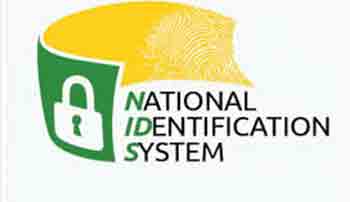JAMAICA | PNP Warns Government Over the Use of NIDS as a Surveillance Tool

KINGSTON, Jamaica, May 26, 2024 - Unless the government can assure the people of Jamaica that their personal data collected under the National Identification System (NIDS) Act will be responsibly managed, the national identification project risks being perceived as a mechanism for state overreach and intrusive surveillance.
This is the word from the Opposition People's National Party (PNP), which has expressed grave concern over the credibility of the new NIDS.
The Opposition has cited the actions and attitude of Technology Minister Daryl Vaz, who publicly disclosed private information on Mr. Golding's interaction with the Passport Immigration and Citizenship Agency (PICA) while discussing the dual citizenship impasse under the proposed constitutional reform.
Minister Vaz's assertion that "nothing is private or secret for public figures" dangerously undermines the essence of the Data Protection Act, which was designed to protect the privacy of all citizens, irrespective of their role in public life. His flippant disregard for personal privacy contradicts the very principles of the legislation he once helped to over
The disclosure, pertaining to Mr. Golding’s British citizenship, represents a clear breach of privacy laws and raises significant concerns about the trustworthiness of NIDS.
The PNP highlighted that this action is a blatant violation of Section 61(a) of the Data Protection Act, which prohibits the unauthorized disclosure of personal data.
This incident undermines the principles of privacy and trust essential to a democratic society and casts a shadow over the impending rollout of NIDS.
 Shadow Minister for Science, Technology, Innovation, and Entrepreneurship, Dr. Andre Haughton, described the breach as a severe invasion of privacy that warrants immediate investigation.
Shadow Minister for Science, Technology, Innovation, and Entrepreneurship, Dr. Andre Haughton, described the breach as a severe invasion of privacy that warrants immediate investigation.
The Minister’s defense, claiming the information was obtained from a PNP member, fails to absolve him of responsibility. The onus remains on the Ministry to uphold the law and protect personal data, regardless of the source.
Dr. Haughton called for immediate accountability and transparency, emphasizing that those responsible for this breach must be held accountable to prevent future violations.
The PNP argues that requiring every citizen to carry an identification card, akin to South Africa's apartheid-era policies, could severely impact citizens' civil liberties and privacy.
Unconfirmed reports suggest that the government plans to amend several existing laws to enforce NIDS, mandating all citizens to submit extensive personal and biometric information, such as retina scans, fingerprints, toe prints, and blood type, which would be stored in a government-controlled database.
Failure to register for NIDS could result in severe repercussions, including restricted access to essential services like birth and death registration, marriage registration, passports, driving privileges, and voting rights. Additionally, non-compliance after three years could result in fines of J$100,000 or community service.
 The cost of implementing NIDS, estimated at $US 68.05 million, has raised further concerns about fiscal responsibility. Social media reports suggest that several legislative changes have already been enacted to facilitate the implementation of NIDS.
The cost of implementing NIDS, estimated at $US 68.05 million, has raised further concerns about fiscal responsibility. Social media reports suggest that several legislative changes have already been enacted to facilitate the implementation of NIDS.
Shadow Minister for Information Nekeisha Burchell warned that the practice of politicians disclosing private information about their opponents as part of political gamesmanship is of grave concern to the public. This incident, she asserted, severely undermines the confidence of the average Jamaican and raises significant concerns about the privacy and security of the data held by government agencies.
Burchell's concerns are echoed by numerous civil rights organizations and privacy advocates, who argue that the NIDS program could be severely impacted by the Minister's actions.
Many Jamaicans could now shy away from participating in the program due to fears about the security of their personal information. The act of requiring citizens to provide detailed biometric data without robust privacy protections in place has raised alarms about potential misuse and abuse of this information by the government.
The National Identification and Registration Bill seeks to establish and regulate a system for the registration, verification, and authentication of the identities of citizens and other persons residing in Jamaica.
It also aims to establish a National Civil and Identification Database to generate national identification cards. Furthermore, the bill provides for the establishment of the Registrar General’s Department as the National Identification and Registration Authority, responsible for the project's implementation.
Critics argue that while the government's stated intention is to streamline identification processes and enhance national security, the potential for abuse and the erosion of civil liberties cannot be overlooked.
The recent breach of privacy involving Minister Vaz has only intensified these fears, highlighting the need for robust safeguards and oversight mechanisms to protect citizens' personal information.
Public opposition to NIDS has been vocal and widespread. Civil rights organizations, privacy advocates, and ordinary citizens have expressed deep reservations about the implications of such a comprehensive identification system.

As the debate over NIDS continues, the Jamaican government faces increasing pressure to address the concerns of its citizens.
Ensuring the security and privacy of personal data, maintaining public trust, and adhering to democratic principles will be crucial in determining the future of the National Identification System.
The government’s justification for NIDS centers around improving national security, streamlining public services, and fostering economic growth by integrating a more robust digital identification system.
They argue that NIDS will facilitate easier access to government services, reduce fraud, and create a more efficient system for identifying citizens. However, these benefits are overshadowed by the potential risks and the government's handling of personal data, as highlighted by the recent privacy breach incident.
Public confidence in the government’s ability to protect personal information is waning, especially in light of the government’s disclosure of Mr. Golding's private data.
This incident has brought to the fore the urgent need for stringent data protection measures and accountability within government agencies. Critics maintain that without proper safeguards, NIDS could become a tool for state surveillance and control, rather than a means to enhance public service delivery.
Civil rights organizations and opposition parties continue to voice their concerns, urging the government to slow down the legislative process and engage in comprehensive public consultations.
They call for a balanced approach that respects individual privacy rights while achieving the intended benefits of NIDS. Transparency, robust data protection frameworks, and independent oversight are essential to address the legitimate concerns of the Jamaican people.
In conclusion, while the National Identification System aims to modernize and improve the efficiency of identification processes in Jamaica, the government's indecent haste in pushing through the legislation has raised significant alarms.
The breach of privacy by the technology Minister underscores the need for stringent data protection and accountability. As the debate over NIDS unfolds, it is imperative that the government addresses the concerns of its citizens, ensuring that the system enhances public service delivery without compromising civil liberties and privacy rights.
The future of NIDS hinges on the government's ability to rebuild public trust, demonstrate transparency, and implement robust safeguards. Only then can NIDS truly serve its intended purpose without becoming a tool for state overreach and surveillance.
-30-
